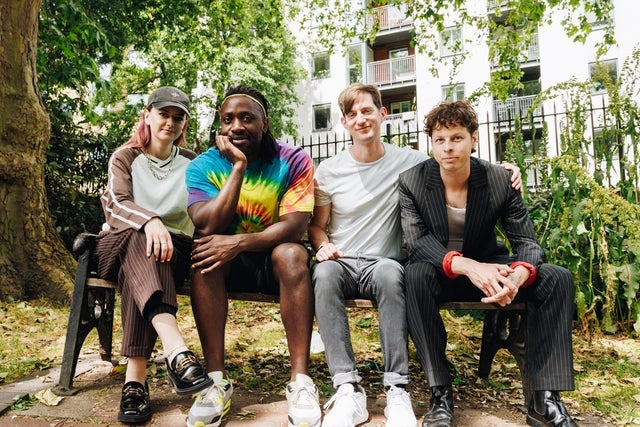This co-headline pairs Bloc Party from London, built on angular guitars, with Interpol from New York, defined by noir melodies and a reserved baritone.
Angular rush meets midnight glow
Bloc Party rose on
Silent Alarm, with urgent vocals over darting riffs, while
Interpol broke through on
Turn On the Bright Lights with clipped guitars and steady grooves. Long-running changes shape both bands today:
Bloc Party rebuilt after a mid-2010s lineup shift, and
Interpol have carried on since their original bassist left, tightening parts and leaving more air. Expect a split bill where each band keeps songs lean and tense, likely leaning on
Banquet and
This Modern Love from
Bloc Party, and
Obstacle 1 and
Slow Hands from
Interpol. The crowd mixes day-one fans with newer listeners. You might see worn
Silent Alarm tees beside crisp monochrome fits that echo
Interpol's aesthetic.
Small notes the records do not show
Lesser-known detail: early
Silent Alarm sessions favored live takes to capture interplay, and the
Interpol guitar team often cues dynamic shifts with subtle onstage moves. Energy in the room rises on sharp upstroke patterns and drops to a hush when the singer holds long, even lines. To be clear, any mentions of possible songs and production flourishes here are educated predictions rather than a locked blueprint.
The Bloc Party and Interpol crowd, styled in monochrome
Monochrome fits, bright accents
This crowd tends to dress clean and practical, with leather jackets, dark denim, and trainers, plus a scattering of vintage 2000s band tees. You will spot fans in suit jackets nodding along to
Interpol deep cuts next to others bouncing when
Bloc Party hits the first riff of
Helicopter.
Shared memories, steady pulse
Chant moments are brief and rhythmic, more claps and shouts on the snare than long singalongs, though the chorus of
Slow Hands often turns into a loud unison. Poster merch leans minimalist for
Interpol with bold type and stark color blocks, while
Bloc Party gear adds brighter accents that nod to
Silent Alarm artwork. Conversations often return to small room memories from the 2000s, while newer fans mention finding both bands through playlists that foreground crisp drums and chiming guitars. The overall feel is focused and warm, with people giving space to move and then locking in together when the groove tightens.
How Bloc Party and Interpol build the night
Rhythm as architecture
Onstage,
Bloc Party push tempos a notch so the drums snap while vocals ride the top, and
Interpol keep a deliberate pace that makes each hit land like a guidepost. Guitars stay bright and percussive for
Bloc Party, with delay and chorus creating a glassy mesh, while
Interpol favor clipped downstrokes and unison lines that lock with the kick. Vocally, Kele's urgent tenor carries hooks and invites quick replies, while the
Interpol delivery holds a cool center with long, even notes.
Small studio tricks, stage results
Arrangements strip extras so interlocking parts read clearly, and both bands treat the hi hat as the engine of the groove. You might hear
Bloc Party stretch the bridge of
This Modern Love into an extended quiet loud build, turning a steady pulse into a room wide clap. A subtler detail is
Interpol fattening choruses with low, nearly hidden synth pads while keeping guitars dry so the vocal sits upfront. Lighting usually mirrors the music, with cold whites and reds for
Interpol and faster, brighter strobes for
Bloc Party, framing shifts without crowding the songs.
Kindred lines: Bloc Party and Interpol fans find neighbors
If you like these, you are close
If you like sharp, danceable riffs and tight rhythms,
Franz Ferdinand will feel close, as their choppy guitars and call and response hooks hit the same nerve as
Bloc Party. Fans of clean, athletic guitar parts that swell into widescreen codas often click with
Foals, whose live peaks mirror the tense to cathartic arc
Interpol and
Bloc Party ride.
Overlapping ears, different accents
The stately, baritone-forward mood of
Editors lines up with
Interpol, especially in how both groups keep the kick drum steady while guitars sketch sharp outlines. For art rock edge with a city night snap,
Yeah Yeah Yeahs share the scene roots and pull similar cross genre crowds even if their palette is spikier and more theatrical. All four acts favor concise song forms that still leave room for a slow burn, which sits in the sweet spot of this bill.



